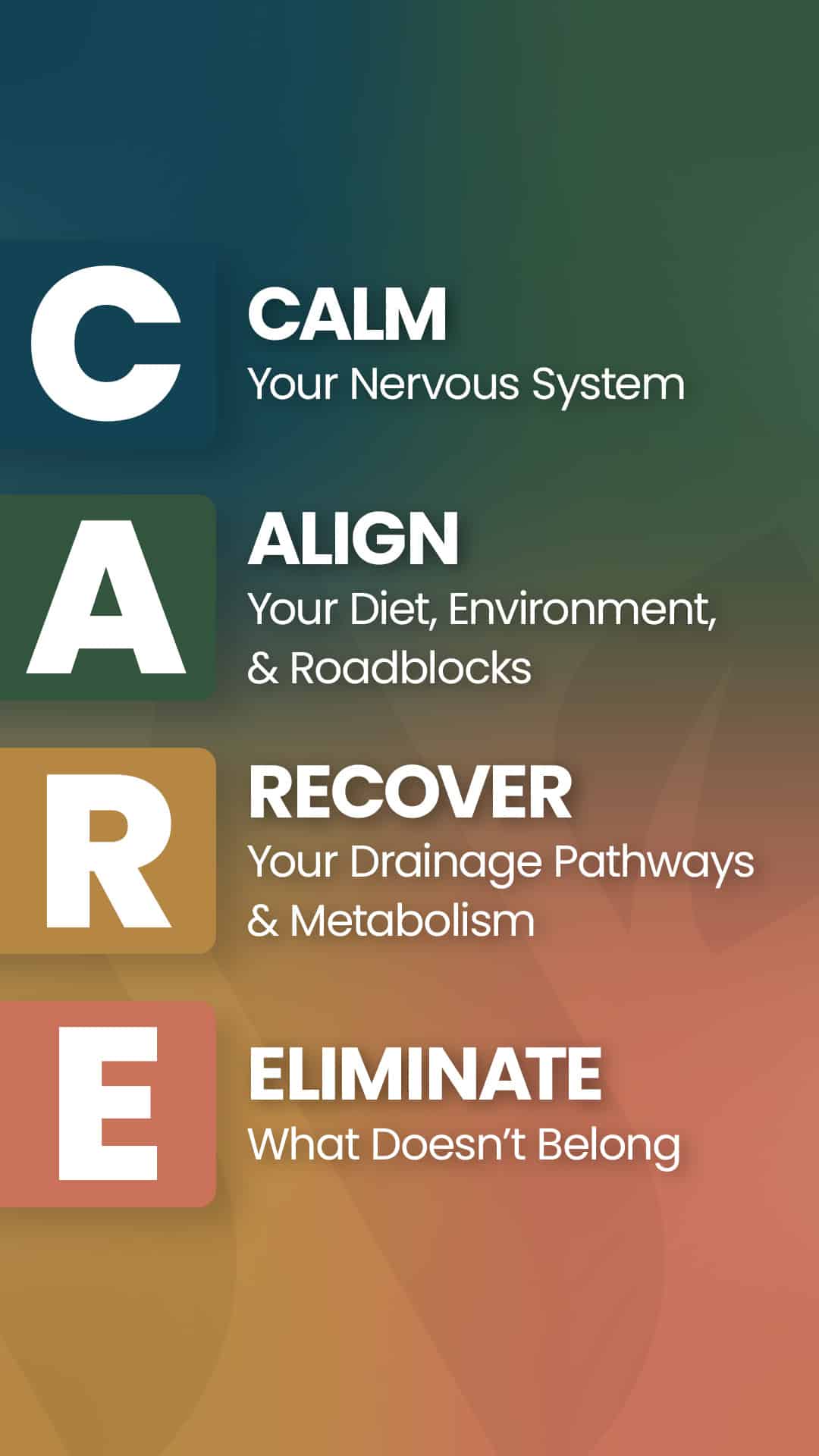Healing Journey Insights & Tools
- Home
- Blog
- Anxiety & Stress
- Finding the Root Cause of Common Mood Disorders
Finding the Root Cause of Common Mood Disorders
Mood disorders and anxiety
Why are so many of us anxious for no reason at all? Why do many of us feel as though we have lost the joy of life? Why do so many of us complain that prescription medications don’t work or bring us back to feeling like ourselves?
Anxiety and depression are typically multifactorial, which means they have many causes. What baffles so many patients is that medications such as selective serotonin reuptake inhibitors (SSRIs) fail to bring them back to baseline and leave them feeling numb.
However, many times the problem is not a neurotransmitter imbalance. The problem is inflammation. Gut inflammation leads to brain inflammation. Nutritional imbalance can lead to brain inflammation. Indeed, any systemic inflammation can result in brain inflammation.
Adults with bipolar disorder commonly swing from one emotional extreme to the next. This is a result of transient inflammation within neuroendocrine-immune cells in the brain rather than severely fluctuating neurotransmitters as previously thought. (1)
A study published last year showed that microglial cells, (immune cells in the nervous system)
have rampant inflammation in disorders like schizophrenia and depression. No wonder drugs like Prozac or Lexapro, when used to treat depression, only partially work for so many patients.
It’s often hard to pinpoint without a personalized consult, but here are my top tips for getting to the root cause of your mood disorder. I want to stress that you do not have to live like this!
Please never stop your medication without consulting your doctor first
A diet poor in vegetables, fruit, health fats, and clean protein
I didn’t always value the benefits of a holistic lifestyle. I ate mostly convenience food: diet soft drinks, boxed food, and microwave dinners. Plus, I took birth control pills, which impacted the action of my natural hormones. I drank tap water, which frequently contains endocrine-disrupting chemicals.
I stayed up late when I had to get up early and drank wine. Then I felt exhausted in the mornings but kept pushing my adrenals with a few cups of coffee. I was stressed out and unhappy with my tedious career choice. Everything in my life was promoting inflammation.
My poor choices compounded one another and led to severe free-floating anxiety. It made me irritable and reactive. However, during that time, I was unaware of the fact that the cheese I loved might be contributing to brain fog. Few people make that connection.
Mood disorders don’t affect everyone. Some people chronically living the lifestyle mentioned above may end up with an autoimmune condition or cancer, but my genes predisposed me to mood disorders.
Our guts are connected to our brains via the housekeeping and calming nerve in our body, known as the vagus nerve. Indulging in a bag of chips that contain preservatives and fillers feed pathogenic bacteria in the gut that sends signals up this nerve to the brain. These bacteria have been proven to shape our moods, cravings, and overall immunity. If we promote the growth of pathogenic bacteria in the gut, then our thoughts and focus will be affected as well. (1)
The majority of our serotonin, melatonin, and immune cells are in the gut. This means that if we are not feeding harmonious bacteria, then our happiness, sleep, and ability to fight infections will be impaired. Inflammation of the gut leads to irritation of the microglia or immune cells of the brain. Disruption in neuroimmune signaling is indicated by recent studies to play a large role in many mood conditions.
Aim to eat organic fruits, vegetables, whole grains like quinoa or brown rice, and clean meats (if you eat them). This means free-range, grass-fed, no antibiotics, and no hormones. I can’t express how many of my patients resolve their lingering mood disorders by changing their diet alone,
Exercise
It is well known that exercise is an excellent stress reliever that can release “happy” neurotransmitters. When you work up a good sweat, your body recognizes this as a moment of stress. As your blood pressure and respiration increase, your brain releases a protein called BDNF, or brain-derived neurotrophic factor, to protect you from the stress. This protein is protective and can even repair neurons and act as a reset switch.
In addition, your brain releases endorphins, which are the feel-good hormones. The purpose is to lessen the discomfort of heavy exercise. It can become addictive, but it’s a healthy addiction. This is why we feel so calm and focused after exercise. Daily exercise can prove to be real medicine for a mood disorder.
Herbs and Minerals
Many of us are drained by our nutritionally-deprived diet and stress. Throughout my career, I’ve witnessed the power of herbs and minerals in one’s mental state. Many conventional medicines, especially for anxiety, are habit-forming and have risks like withdrawal seizures if not weaned off properly. That’s why I always try to supplement naturally before trying other avenues (I’m partial to my own Stress Master that contains many of the herbs listed below).
Favorite herbs, minerals, and compounds for anxiety:
- Ashwagandha
- Holy basil or Tulsi
- Rhodiola Rosea
- Chamomile
- Passionflower
- CBD, cannabinoids, the non-psychoactive part of the marijuana plant
- Skullcap
- Magnesium (magnesium glycinate is the most absorbable)
- L-theanine
- Gotu Kola
- Beta Glucans
Favorite herbs, minerals, and compounds for depression:
- SAM-e
- St John’s Wort
- 5-HTP
- Ginseng
- Vitamin D
- Curcumin/Turmeric
- Omega 3 Fatty Acids
- Probiotics
- Low dose naltrexone is also useful for depression and autoimmune disorders.
Please be sure to consult your trusted healthcare professional before trying to self diagnose or cure.
Genetic testing
I encourage many of my patients to explore genetic testing. Rather than simply offer herbs or medications by trial and error, genetic testing for mutations can provide key information regarding your mental health.
One of my favorite genetic tests is the SNP test by Great Plains lab (however, it requires a prescription). If you’re looking for something you can order easily, then 23 and me is a good choice. It tests multiple genes and scans for mutations throughout the genome. It can tell you if you’re at risk for Alzheimer’s or prone to panic attacks.
The OAT (organic acid test), also by Great Plains lab, is excellent as it measures neurotransmitter by-products in the urine. This tells us what neurotransmitters have too much or too little activity and can target specific therapy for the patient.
Here are the best SNPs/mutations to watch for:
- Stat4-normally codes for proteins that activate TH1 immunity but a mutation here codes for an aggressive inflammation response instead
- TNF (tumor necrosis factor)-cytokine or cell communicator that codes for T and B cell activation. A mutation means T cell overactivation that leads to mood disorders through brain inflammation.
- CTLA4-cytotoxic T lymphocyte-associated protein-4-downregulates the immune system when needed. A mutation means that you have chronic inflammation as the immune system is too overactive.
- MTHFR-40% of the population has a mutation in one or both of these genes. These patients cannot methylate or activate B vitamins and methylation is used in thousands of processes in our bodies. This causes a propensity towards depression and anxiety.
- COMT or MAO mutations-this means that the enzyme that breaks down certain neurotransmitters is slow, so there are higher levels of adrenaline throughout the body that these patients are not able to rid themselves of. This can lead to severe anxiety and behavioral issues.
Lifestyle changes and lab checks
Tempering your exposure to EMF from computers and cell phones can help moods as well. Have you ever looked at the informational insert that comes with cell phones? They directly warn about the dangers of continuous EMF and low-level radiation. On May 21, 2011, the International Agency for Research on Cancer (IARC), a committee of 27 scientists from 14 different countries working on behalf of the World Health Organization (WHO), concluded that exposure to cell phone radiation is a “possible carcinogen” and classified it into the 2B category.
This is the same category as the pesticide DDT, burning coal and dry cleaning chemicals, just to name a few. Be sure to put blue screens from computers and phones away at night. Practice good sleep hygiene.
If you still cannot sleep and are suffering from racing thoughts and mood swings, ask your healthcare provider to check your sex hormones, your salivary cortisol levels to screen for adrenal fatigue and your vitamin D levels. These are crucial labs when dealing with mood disorders.
On top of diet and exercise changes, incorporating these lifestyle changes and checking on lab values can help to treat chronic depression and anxiety.
Addressing emotional and spiritual wounds
Stress and trauma are inherently connected to our wellbeing. If you were abused or mistreated as a child and have not thoroughly processed the trauma, it can reveal itself through disease or mood disorders.
Autoimmune disorders nearly always have a traumatic event that preceded the onset of the symptoms. Heart attacks can even occur due to a severe heartbreak, like the death of a loved one. Many mood disorders have roots in trauma, emotional wounds, childhood abuse and unprocessed emotions. Be sure to let yourself grieve, mourn, and cry over these events. Even journaling can help with releasing suppressed emotions and pains.
Final thoughts
Treating mood disorders takes a multilevel approach. Don’t give up just because one thing didn’t work for you. You can take control of your life by taking action in areas that need TLC, but be honest and ask for help when you need it.
You are becoming your own best doctor!
REFERENCES:
- https://www.ncbi.nlm.nih.gov/pmc/articles/PMC4701682/
- https://neuroscienceresearch.wustl.edu/userfiles/file/Gut_brain%20axis%20How%20the%20microbiome%20influences%20anxiety%20and%20depression_Tran%20%20%20.pdf
- https://articles.mercola.com/sites/articles/archive/2011/06/18/finally-experts-admit-cellphones-are-a-carcinogen.aspx
Real Progress From
Real People
FREE CARE Plan eBOOK by Dr. Jess, MD.
This system mirrors Dr. Jess MD's steps with patients in her virtual clinic. It’s not a diagnosis, it’s a roadmap; a step-by-step process designed to help people restore function, remove roadblocks, and rebuild resilience.

